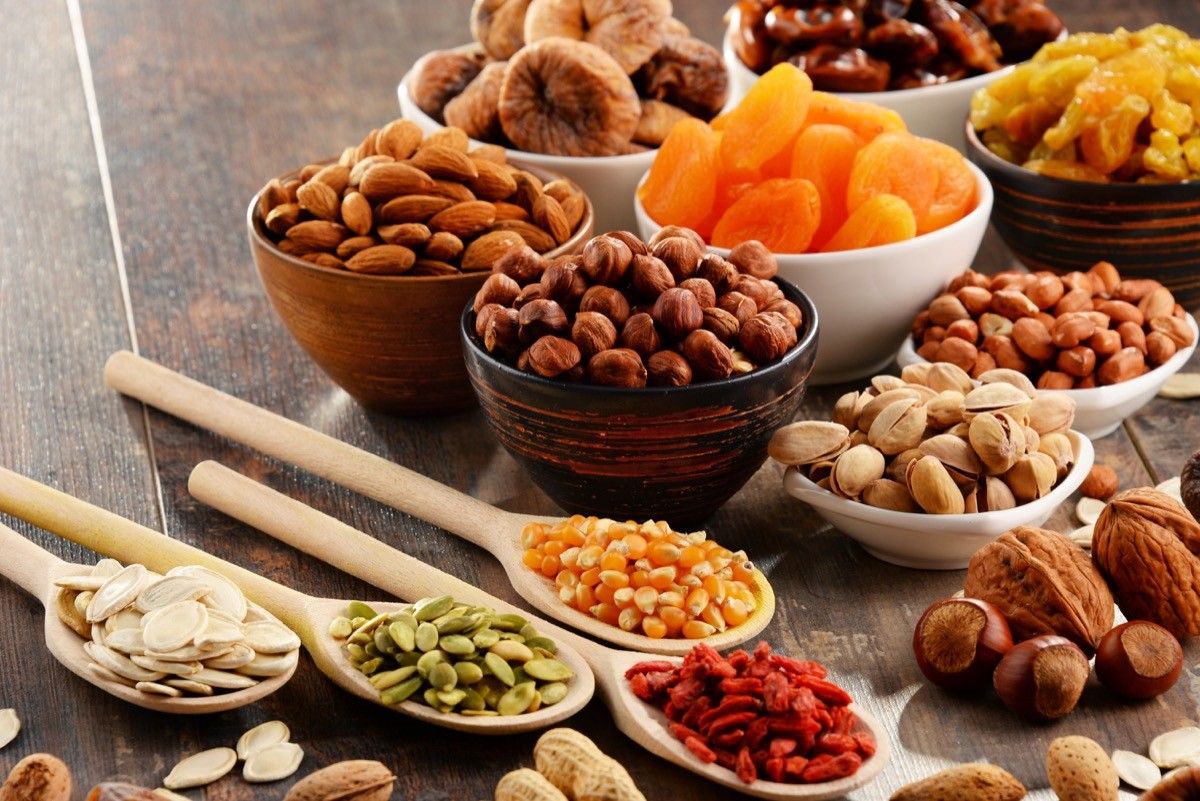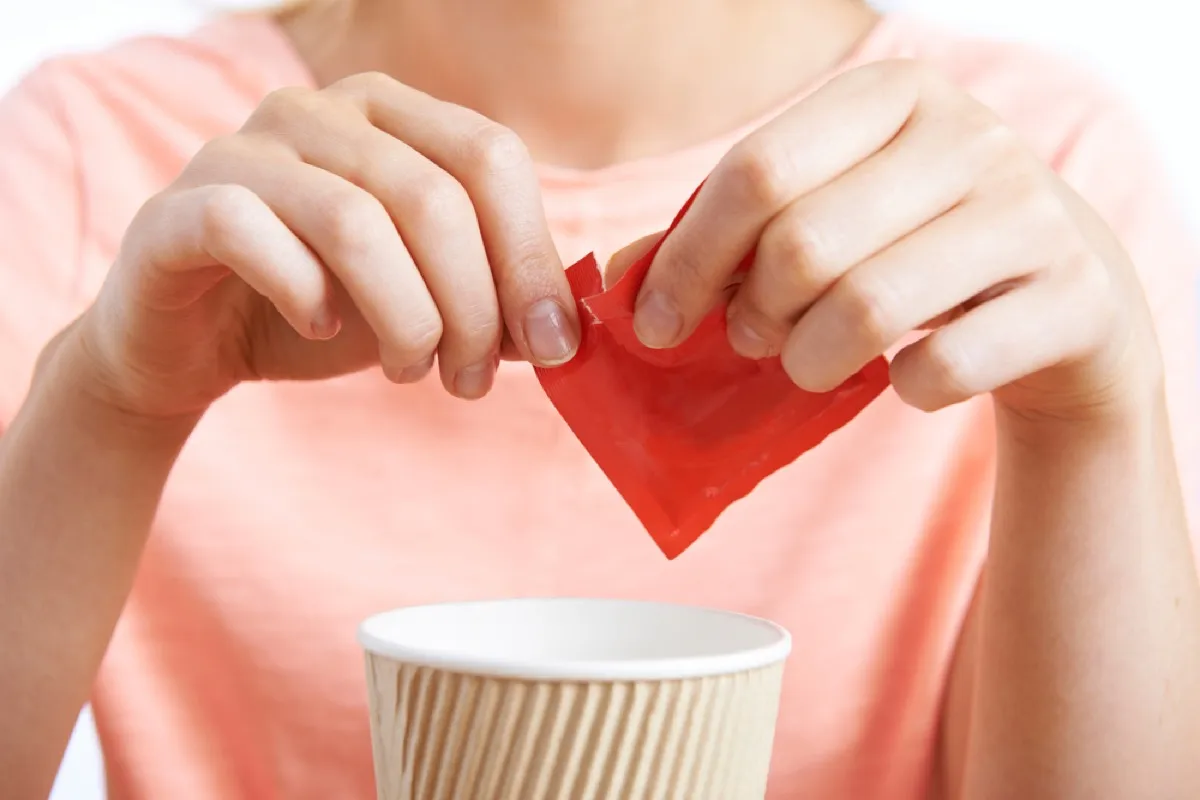5 Surprising Foods That Are Sabotaging Your Diet, Experts Say

When it comes to your diet, many doctors tout the phrase “everything in moderation.” By that, they mean that no one food should be stricken from the menu based on health, and instead you should aim to eat mostly healthy foods, most of the time. That said, it’s not always easy to tell which foods are “all the time” foods, and which should be eaten more sparingly—and items that appear healthy but aren’t can seriously sabotage your good intentions more often than you’d like.
That’s why we reached out to the experts to tell us which unhealthy foods could be flying under your radar and undermining your health goals. Read on to learn the five surprising foods that are less healthy than they appear, and to find out how they could be sabotaging your diet.
READ THIS NEXT: Drinking This Popular Beverage Can Cause Liver Disease—And No, It’s Not Alcohol.
1
Low-carb packaged foods

Carbohydrates get a bad rap, but they’re an essential part of any diet, providing your body with glucose which can be converted into energy. However, not all carbohydrates are created equally. It’s best to opt for unprocessed carbohydrate sources such as whole grains, fruits, and vegetables, rather than refined carbohydrates which can be found in foods like white bread, processed cereals, cakes, and more.
With the rising popularity of the Atkins and keto diets, many people now turn to low-carb packaged foods to lose weight. However, these may ultimately be sabotaging your weight loss goals, says Lindsay Delk, RD, RDN, the food and mood dietician. “Although they may be marketed as low-carb, they are usually higher in fat and calories than the regular option,” she explains. “While the carbs have been reduced, manufacturers often replace them with fats to create a product that still tastes good. Fats have more calories per gram than carbohydrates do, so eating these products in large quantities can lead to an increase in total calorie intake,” Delk tells Best Life.
READ THIS NEXT: 6 Things Your Kidneys Wish You’d Stop Doing, According to Experts.
2
Certain beverages

Delk says that when people are trying to maintain a healthy weight, they often forget to assess the nutritional value of their beverages. “It is very easy to quickly drink a lot of calories,” she says. “Of course, sodas and sweet tea have a lot of sugar and calories that lead to weight gain, but even if you drink a lot of juice, the calories will add up.”
Putting cream and sugar in your morning coffee can also sabotage your weight loss goals, Delk notes, especially if you drink multiple cups per day. Alcoholic beverages can even more dramatically increase your calorie count.
For more health news sent directly to your inbox, sign up for our daily newsletter.
3
Dried fruit

Fresh fruit is an excellent source of vitamins, minerals, and fiber—and according to Anthony Komaroff, MD, Editor-in-Chief of the Harvard Health Letter, this is true of dried fruits as well.
However, Komaroff points out that portion sizes for dried fruit can confuse many people into eating more than they intend. “Because dried fruit is so much smaller than the fresh fruit from which it comes, it’s easier to consume a lot of calories eating dried fruit,” he writes. “I rarely eat three fresh apricots or 30 grapes in the course of a few hours, but I frequently consume more than three dried apricots and 30 raisins in a few hours.” Additionally, many dried fruit makers add sugar to their products, on top of the sugar which occurs naturally in fruit.
4
Artificial sweeteners

The average American eats roughly three times the recommended amount of sugar, and experts warn that this likely leads to higher BMIs. “I don’t think we have enough evidence yet to suggest that sugar is the reason for the obesity epidemic,” says cardiologist Chiadi E. Ndumele, MD, MHS. “But there is enough evidence to say that elevated sugar consumption is an important contributor to weight gain,” he wrote for Johns Hopkins Medicine.
However, some studies suggest that replacing sugar with artificial sweeteners may still deal damage to your diet, resulting in weight gain over time. In fact, a 2017 report published in the Canadian Medical Association Journal, which analyzed 37 studies regarding the effect of artificial sweeteners on weight management, found just that. The researchers concluded that rather than helping people lose weight, artificially-sweetened beverages could be sabotaging their diets. Besides being linked to weight gain and obesity, they also appeared to increase one’s risk of diabetes and heart disease.
5
Pre-packaged diet foods

Some foods are explicitly marketed as weight-loss friendly, but that doesn’t mean they’re necessarily good for you. In fact, Vice reports that foods that are labeled with health claims are only “marginally” healthier for you than conventional pre-packaged foods.
Delk says that instead, you should opt for a wide variety of fresh, whole foods whenever possible. “Whether you are trying to lose weight or just eat healthier, your best diet plan is one full of whole grains, fruits, vegetables, fish and other lean meats, low-fat dairy, and healthy fats. Fill up on these foods at meals and snacks so you won’t be as tempted by ultra-processed foods,” she advises.
Best Life offers the most up-to-date information from top experts, new research, and health agencies, but our content is not meant to be a substitute for professional guidance. When it comes to the medication you’re taking or any other health questions you have, always consult your healthcare provider directly.